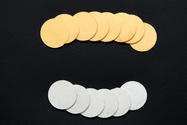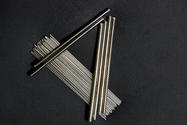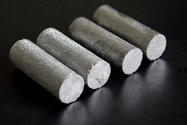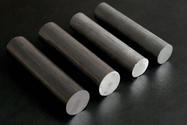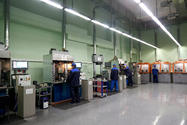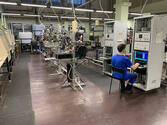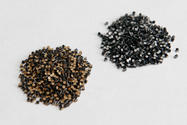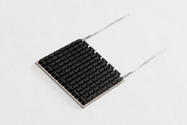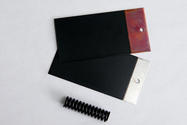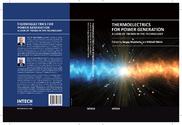- Home
- News

 RusTec has upgraded its ISO Certificate which confirms that Quality Management System of our Organization is in compiance with standard ISO 9001:2015.
RusTec has upgraded its ISO Certificate which confirms that Quality Management System of our Organization is in compiance with standard ISO 9001:2015.
The Russian scientific journal «Physics and Technology of Semiconductors» has published an article written by RusTec specialists. The article title is «Development of technology for high-strength thermoelectric materials up to 35 mm in diameter based on Bi2Te3 polycrystals by hot extrusion».
The specialists of RusTec will make a presentation on the topic "Development of technology for high-strength thermoelectrics up to 35 mm in diameter based on Bi2Te3 polycrystals by the method of hot extrusion" at the XVII International Conference «THERMOELECTRICS AND THEIR APPLICATIONS - 2021 (ISCTA-2021)», which will be held in St. Petersburg, September 13 - 16, 2021
 Top managers of RusTec LLC S.Skipidarov and M.Nikitin finalized editing of next book on thermoelectrics. The book called "Thin Film and Flexible Thermoelectric Generators, Devices and Sensors" was published online by Axel Springer on 14.03.2021. The book is available for downloading and reading here.
Top managers of RusTec LLC S.Skipidarov and M.Nikitin finalized editing of next book on thermoelectrics. The book called "Thin Film and Flexible Thermoelectric Generators, Devices and Sensors" was published online by Axel Springer on 14.03.2021. The book is available for downloading and reading here.
This book presents and facilitates the interchange of new research and development results concerned with hot topics in thermoelectric generators (TEGs) research, development and production. Topics include prospective thermoelectric materials for manufacturing TEGs operating in low-, mid-, and high temperature ranges, thermal and mechanical degradation issues in prospective thermoelectric materials and TEG modules, theoretical study of novel inorganic and organic thermoelectric materials, novel methods and apparatus for measuring performance of thermoelectric materials and TEGs, and thermoelectric power generators simulation, modeling, design and practice. This book helps researchers tackle the challenges that still remain in creating cheap and effective TEGs and presents the latest trends and technologies in development and production of advanced thermoelectric generation devices.
Provides a concentration of new research and development in the field of Thermoelectric energy generation;
Facilitates the rapid interchange of new ideas and results to react effectively to the challenges of Thermoelectric generators;
Explains both the advancements and challenges in TEGs.
RusTec have finalized editing of the new book on Thermoelectrics. The name of the book is «Novel Thermoelectric Materials and Device Design Concepts» and it is opened by the article of RusTec’s authors called «Investigating the Performance of Bismuth-Antimony Telluride». Read more.
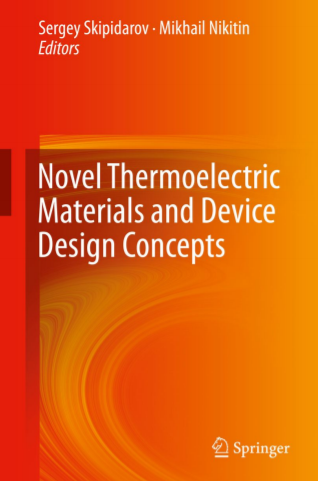 Preface
Preface
Book 1 of book series Thermoelectric Power Generation includes chapters that discussed ways on how to create effective thermoelectric materials for manufactur- ing high-performance thermoelectric generators (TEGs) operating in low-, mid-, and high-temperature ranges. The problem is very old and very difficult to solve. Unfortunately, nowadays, we see a lack of innovative and affordable n-type and p- type thermoelectric materials and TEGs on the market.
The indomitable consumption of fossil fuels has resulted in gigajoules of low-potential waste heat and huge amount of greenhouse gases. Waste heat energy, which is conditionally a free-of-charge energy, is estimated to be from 50 to 70% of the primary energy produced from the burning of fossil fuels. Low-potential heat can be generated due to absorption of sunlight as well. So, it is easy to generate waste heat, but difficult to convert it into electrical energy.
The efficient recovery of low-potential heat is an important and nontrivial task. Sources of such heat are plentifully everywhere, and, as a rule, it is simply dissipated without any benefit to the people. This is caused by the fact that low-potential waste heat is strongly localized near heat sources; therefore, that heat is difficult to use in a cost-effective manner for an intended purpose. TEGs are small-sized items that can be placed as close as possible to heat (thermal) energy sources, which can have temperatures of hundreds of degrees Celsius. It can operate anywhere (including indoors) and at any time of the day. These factors are decisive for applying TEGs to recover low-potential heat. Therefore, in practical applications, TEG’s structure will be exposed to systematic long-term heavy temperature gradients, mechanical stresses (thermomechanical stresses), and high temperatures on one (hot) side. TEGs, and hence the thermoelectric materials forming legs of thermocouples, must withstand the abovementioned shock.
Obviously, only materials based on pressed powders and composites can with- stand long time in real heavy thermal and mechanical attacks during TEG exploitation.
In TEGs, due to high temperatures (hundreds of degrees Celsius) on the hot side and heavy thermomechanical stresses in module, many processes become active, leading to a quick or gradual degradation in the performance of the thermoelectric materials and TEG itself. These degradation processes are, namely, interdiffusion, recrystallization, alloying, dissolution, phase transitions, phase separation, phase segregation, sublimation, oxidation, mechanical damage of legs, commutation and interconnections, and other phenomena.
Authors of chapters present their look on modern solutions of considered problem including microstructural manipulation (alloying, nanoprecipitates and strains, com- posites, nanoinclusions, multiphase and all-scale nanocomposites), optimizing con- centration of charge carriers (deep-level doping, dynamic doping), band engineering (band convergence, resonant states, low effective mass, and deformation potential coefficient), crystal structure defect engineering, potential interface barriers, and solubility manipulation.
To become attractive and affordable to customers, TEGs should have a service life of at least 5000 h, with thousand cycles on-off, and, of course, be cheap as well. This book is an attempt to arrange the interchange of research and development results concerned with hot topics in TEGs research, development, and production, including:
- Trends in traditional inorganic materials
- Novel inorganic materials
- Research results in innovative composite nanomaterials
- Novel methods and measurement techniques for performance evaluation of thermoelectric materials and TEGs
- Thermoelectric power generators simulation, modeling, and design.
Moscow, Russia Sergey Skipidarov
Mikhail Nikitin
From 1st to 4th of July, 2019, RusTec participated in the ICT/ACT 2019 - 38th Annual Conference on Thermoelectrics – the biggest event in the world of Thermoelectrics, which was held in Gyeongju, South Korea. During the exhibitional part of the Conference, RusTec introduced their latest achievements in the field of thermoelectric material production. RusTec's booth was of great interest among visitors and professionals of the thermoelectric industry.
RusTec will participate in ICT2019, 38th International Conference on Thermoelectrics (1-4 July 2019, Gyeongju, South Korea), with demonstration of our latest achievements.
RusTec will participate in European Coating Show 2019 (19-21 March 2019, Nuremberg, Germany) with demonstration of our achievements in polymer corrosion protection.
RusTec has started collaboration in Russian-Israel project concerned with development of thermoelectric generators for autonomous water heating system in buildings.
RusTec LLC attended “Skolkovo startups’ presentations” meeting with Renault-Nissan-Mitsubishi-Avtovaz alliance where presented “High-Temperature Anticorrosion Polymer Coatings”.
RusTec will attend upcoming Interstate Conference “Thermoelectrics and their applications” (St-Petersburg, Russia, 08-12 Oct, 2018) with oral presentation.
RusTec specialists attended the International Conference on Thermoelectrics (Caen, France, 01-05 July, 2018) with oral presentation.
RusTec has applied for patents (PCT/RU 2017/000100 dated October 4, 2017) for temperature (up to 280 °C) and chemically (corrosive environments, oxidizing environments) proof coating deposited through cathodic electrodeposition.
RusTec intends to take part in Russia-Israel project for bilateral cooperation where ROSNANO acts as the authorized representative of the Russian Federation.
 The new book “Thermoelectrics for Power Generation” edited by the specialists of RusTec with the articles of leading explorers now can be found in Internet via this link
The new book “Thermoelectrics for Power Generation” edited by the specialists of RusTec with the articles of leading explorers now can be found in Internet via this link
Specialists of RusTec are invited by SPRINGER Science+Business Media for publishing four books on thermoelectric topics in Year 2019.
RusTec found the way to achieve a 20-25 % increase in efficiency of thermoelectric generators operating at temperatures ranging between 50 and 350 °C. The developed technology is under patenting. Taking into consideration the conservative nature of thermoelectric industry development, this is an important step towards its practical application.





.pdf)
